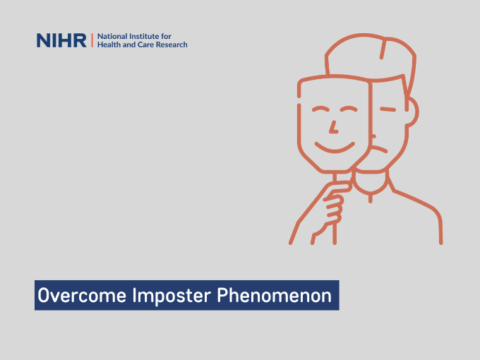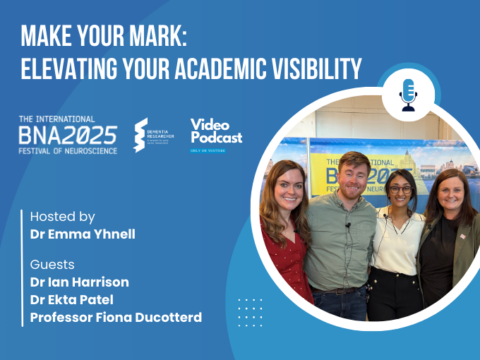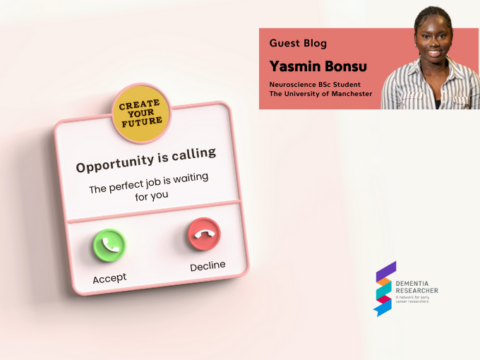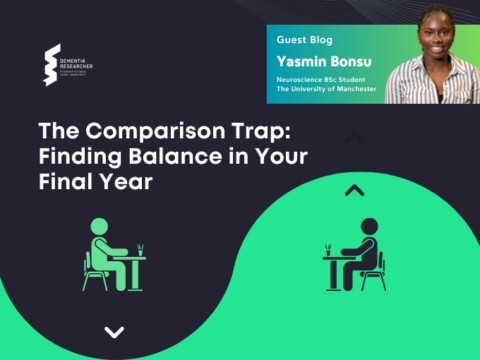Only a couple of months until I’m no longer an undergraduate… scary! I wanted to use this blog entry as an update of what a final semester is like as well as offer a few tips and tricks that I’ve found helpful in dealing with graduate job and PhD applications and maintaining what I consider to be a healthy work-life balance.
Recently, I sent off a PhD application and have yet to receive any updates on my application status. Whilst it’s true when they say, “no news is good news”, it still does not make it any easier waiting to have the band-aid ripped off. Throughout the application process, and even now if I am being honest, I started to have second thoughts as to whether this was the right option for me. I got scared and doubted if I was smart enough to do a PhD, or if accepted, would my passion for and curiosity in research decline over the years. All these valid concerns got reassured over a, very much needed, lunch date with one of the post-doctoral researchers from my placement. She explained to me that what I’m feeling is absolutely normal and I shouldn’t feel ashamed. Having a PhD isn’t always about being the smartest person in the room, it’s essentially a job. A job that you need to be determined and persistent in seeing it through in spite of any hiccups you’ll most definitely come across. So that’s something I’ll continue to remember if accepted.
Another thing I learned, and still learning, from this application journey is writing personal statements and/or cover letters. When it comes to the personal statements – thanks to the help of my former supervisor Dr Becky Carlyle and also my parents – I realised you have to approach it as a researcher and not a student applying. What I mean by that is rather than simply stating you have a profound interest in a particular area, support it with evidence that explains what you did and what you learned from it. A nice succinct way of conceptualising this is the STAR (situation, task, action, response) method. This is a method you can use for interviews, presentations, job applications – anything of that nature really. So, if you are in your penultimate year of study applying for summer internships or industrial placements or a soon-to-be grad like me, I would highly recommend using this method and see the outcome.
Now I know that even after producing the best and persuasive cover letter/personal statement you’ve ever written, you can end up being unlucky and receive that dreaded “We regret to inform you” email. Trust me, I have seen those 5 words far too many times than I care for, but I will not give up. I’m aware I’ve spoken about rejection in one of my blog entries before, but I keep feeling the need to bring it up because of how disappointingly common it is. I know there are countless others out there in the same position that I am in and the constant rejection seriously makes it difficult to find the will to keep on putting yourself out there, but one thing that helps me keep on going is the thought that this blip is not forever.
In terms of my studies, I have really enjoyed learning some certain modules such as molecular clocks in immune diseases and how chronotherapy in drug administration could be used to regulate the body’s intrinsic clock. I’m also looking forward to diving into neuroinflammation —especially the lecture on neuroinflammation in Alzheimer’s disease. Having worked in a lab where I conducted a peptide screen of granin peptides in an iPSC-derived cortical model of Alzheimer’s to assess their effects on neurite length, I focused largely on their potential neuroprotective roles. And whilst my model didn’t directly assess neuroinflammation because I didn’t co-culture it with microglia or astrocytes, studying this module is making me think that perhaps in an inflammatory environment the peptides’ effect on neurite outgrowth could have been influenced in a different way. These modules have not only enriched my academic knowledge but also inspired me to explore how different treatments could be leveraged in neurodegenerative diseases, a topic close to my heart given my research interests in Alzheimer’s disease.
Over the next couple of months, I will be trying to balance my time between revising for final exams, working on my final year science communication project, and my part-time job.
It’s a lot to juggle, but each responsibility reminds me of why I am passionate about this field. My advice for anyone navigating their final semester is to please prioritise self-care. For me that is reading a good old fantasy book or facetiming with friends. Break down your tasks into manageable chunks, celebrate small victories, and don’t hesitate to reach out for support when needed.
Moreover, if you’re in the same boat as me, considering the next steps post-graduation, whether it’s a PhD, a job, or something entirely different, remember that it’s okay to feel unsure. We are young and are meant to have our options open and be curious about many things. For those preparing for exams, I’ve found that creating concise revision notes based on previous exam questions using the app Quizlet can be an absolute Godsend.
To everyone reading this, whether you’re just starting your degree or wrapping it up like me, remember that your journey is uniquely yours. Celebrate your progress, learn from mistakes, and keep pushing forward.

Yasmin Bonsu
Author
Yasmin Bonsu is an an undergraduate student from the University of Manchester, who recently completed a placement year in the Carlyle Lab at Oxford University. Yasmin was investigating the activity of proteoforms of the granin family in cortical neurons insulted with oligomerised amyloid beta. Her goal is to her bachelor’s degree in neuroscience, and then pursue a PhD in clinical neuroscience. Through Yasmin’s blogs we’ll gain insights on life as an undergraduate, and hopefully inspire others to pursue a career in dementia research.

 Print This Post
Print This Post




